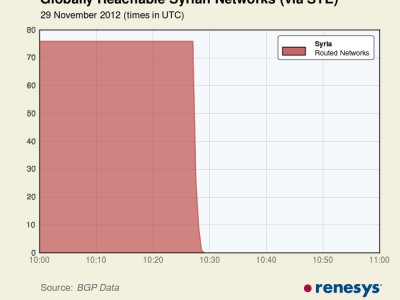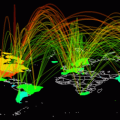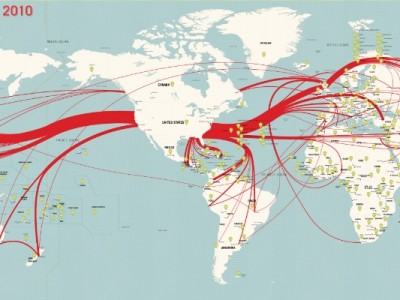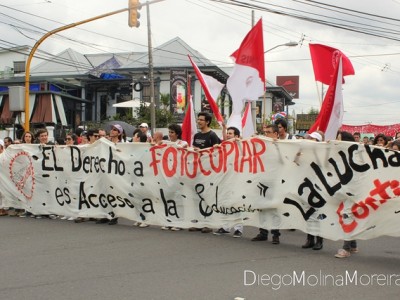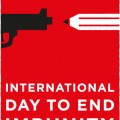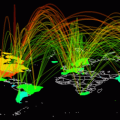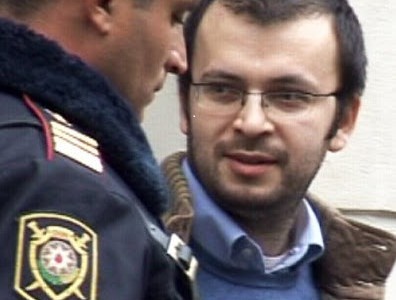Stories about Advocacy from November, 2012
Zambia: “SIM Registration is For Security Reasons”
Recent admission by Zambia's telecoms regulatory body that the mandatory registration of SIM cards was being done to mount a security data base for users is stirring controversy among users and netizens.
Life Sentence for Qatari Poet for Insulting Amir
The poem is said to praise the Arab Spring, drawing comparisons to other countries living in repression and under dictatorship. According to Qatari journalist Abdulla Al Athbah, Al-Deeb's poem was seen as insulting to the Qatari Amir, and called for overthrowing his rule.
Syria Plunges Into Total Info Darkness
On Thursday, the US-based internet connectivity monitoring firm, Renesys, reported that internet was cut off in Syria. All of Syria's 84 IP address blocks were inaccessible, “effectively removing the country from the Internet.”
Citizens Tell Governments: Vote for Openness at the ITU
Today, Internet rights advocates are urging their governments to vote for openness at the conference of the International Telecommunication Union (ITU). Beginning Monday, Member States of the UN agency will decide whether the ITU should expand its regulatory authority to the Internet -- a move that could threaten privacy, free expression, and access to information for Internet users around the globe.
Open letter to Marissa Mayer: HTTPS for all Yahoo! communications services now!
After the celebrated appointment of Marisa Mayer as CEO of Yahoo!, the new leadership has the opportunity to fix an urgent matter: Yahoo! Mail is the only major web-based e-mail service that continues to rely on insecure connections. Google enabled default Hypertext Transfer Protocol Secure (HTTPS), a widely used communications protocol...
In Case of Disconnection: Preparing Gaza for an Internet Shutdown
For days, rumors have abounded that Israel—which controls the telecommunications infrastructure of Palestine—plans to shut down the Internet in Gaza. While thus far the rumors have proven false, various organizations and actors are working to ensure that Gazans are prepared.
Domain Names: Expression that Deserves Protection
The Initiative for Freedom of Expression on Internet (iLEI, by its Spanish name), a special program of the Center of Studies for Freedom of Expression and Access to Information, has a new work where it addresses the relationship between freedom of expression, domain names and the various models countries adopt to administrate them.
Translation Project: Protect Global Internet Freedom statement
Over the next seven days, Global Voices Lingua volunteers will be translating a public online petition that supports the protection of human rights online and urges government members of the International Telecommunication Union (ITU) to preserve Internet openness at the upcoming conference of the ITU. Open for sign-on by any...
Blogging on behalf of Hamid
Antonella has not blogged since long time. Her last blog post was on April 25, 2012 in which she wrote: “Dear Hamid, Every day I discover how vast a heart can be, like a new landscape at the horizon where sadness, hope, forgiveness, fear, joy and pain run far...
China: Beijing Twitterer Detained for Writing Micro-fiction
A Beijing Twitterer @Stariver has been detained since November 7th, 2012, at the eve of the 18th National Chinese Communist Party Congress. According to his friends who visited his family on November 17, the excuse provided by the police officers was that @stairver was “involved in spreading false and terrible...
Portugal: Activist blog silenced by Google
On the day of Portugal's general strike, Google's Blogger took down an activist blog maintained by one of Portugal's largest organizations advocating for "precarious" workers. The group suspects the move was motivated by allegations of defamation by a Portuguese company, accused of abuses by a commenter.
MENA Netizen Report: Porn Edition
Most of this month’s report was researched, edited, and written by Rayna St, Nermeen Edrees, and Hisham Almiraat. After a YouTube trailer named “The Innocence of Muslims” sparked a widespread wave of protests in the region earlier this year, various actions by MENA governments were undertaken to strictly regulate online...
Latin America and the Caribbean Netizen Report: Cybercrime Edition
In the last 10 years, various countries in the region have put forward legislation that attempts to combat computer crimes. As a result of these initiatives, the state collects the personal information of Internet users, running the risk of violating their right to privacy.
International Day to End Impunity: Join the Campaign
To demand justice for all artists, journalists, musicians and writers who are forcibly silenced around the world, IFEX has decided to name November 23 the International Day to End Impunity. Join in!
Anonymous Twitter Account Leads Major Protests in Kuwait
Tens of thousands showed up in the areas of Mishref and Sabah Al-Salem protesting the Kuwaiti Amir's amendment of the voting law which allows a citizen to vote for one candidate instead of four. What is interesting though is that an anonymous Twitter account is the one deciding dates of marches and meeting points. Mona Kareem shares Twitter reactions to the march, in addition to photographs and videos.
Same Technology, Different Freedoms: How U.S. Copyright Law Can Restrict Mobile Devices
From a user’s perspective there is not much difference between a smartphone and a tablet. Both devices are portable touch-screen computers, and while the a smartphone might have a dedicated dialing application by default, the ability to make voice calls or connect to a cellular network is not an exclusive...
Azerbaijan: “A Country that Portrays Social-Networkers as Mentally Ill”
While all eyes were on the presidential election in the United States, a major international conference started on Tuesday in Baku, the capital of the former Soviet Republic of Azerbaijan. The 7th United Nations Internet Governance Forum (IGF) claims to bring “all stakeholders” as equal partners to discuss major issues relating not only to the future of the Internet but also to matters of policing, management, and of course, freedom of expression online.
Chile: Why do we Need Exceptions to Copyright?
We have already explained how copyright can clash with freedom of expression. But are there legal alternatives in a copyright system that is increasingly restrictive? If all works are always an interpretation of other works, can we have access to them without necessarily becoming “delinquents”? The good news is that yes, we can, although there are limitations. We have released a new video in the #NoTemasaInternet (Don’t fear the Internet) campaign and will soon upload more material about this issue.
Protecting the Open Web: Net Activists Unite
Netizens around the world are coordinating advocacy on the upcoming conference of the International Telecommunication Union, where member states will decide whether or not the ITU should cover Internet-policy matters—leaked treaty documents include proposals for global regulations that could place limitations on online privacy, free expression, access to information and ICT use around the world. Find out how you can get involved in the effort.
Azerbaijan: Open Letter to President Aliyev Ahead of International Governance Forum in Baku
The Internet Governance Forum (IGF) is a UN-sponsored conference which aims to “bring[ ] together all stakeholders in the internet governance debate.” This year it is held in Baku, the capital of the former Soviet republic of Azerbaijan where, starting on Tuesday, government officials, representatives of the private sector, the...



